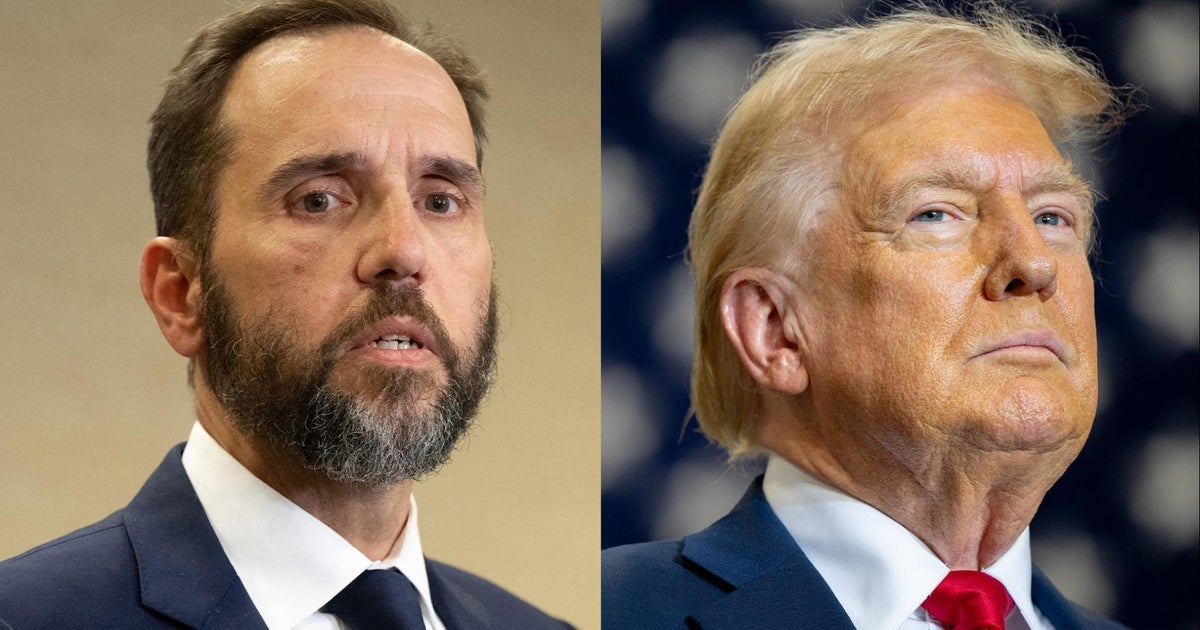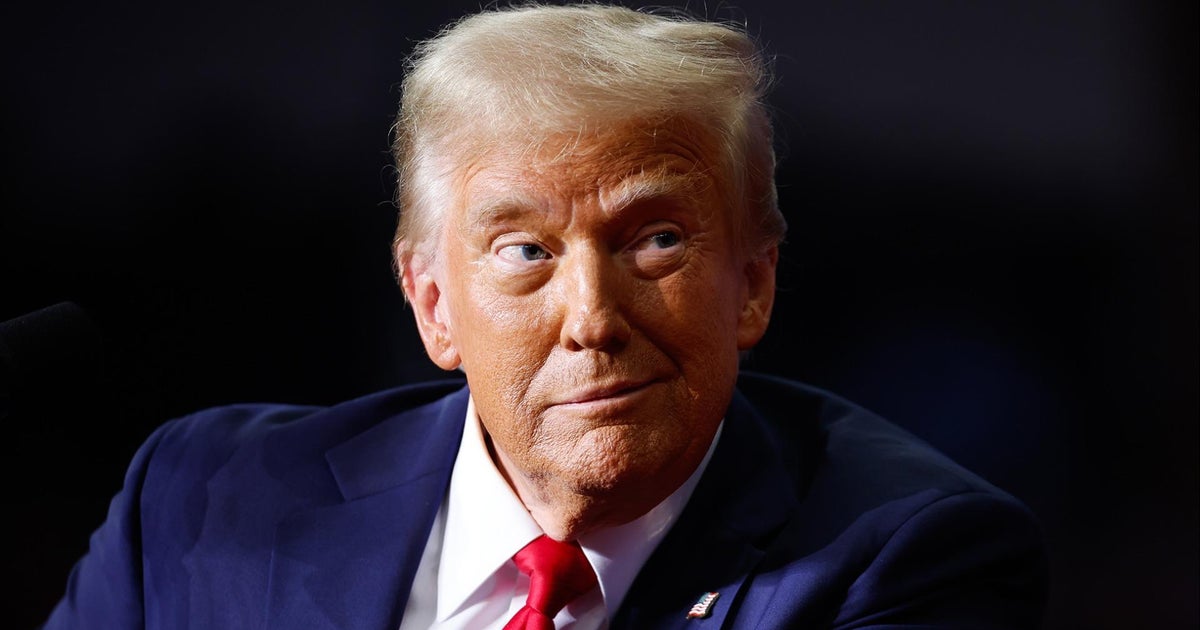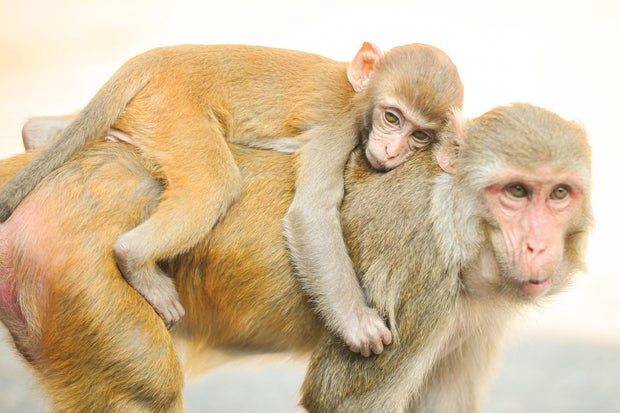CBS News
Inflation may be cooling, but car insurance rates are revving up. Here’s why.

Kayla Mills spent most of this year driving a Honda HRV, but last month she decided to return the vehicle to the dealership. Her reason? The $520 a month car insurance bill no longer fit her budget.
“I can pay it, but being able to afford it while also affording the rising costs of everything else going on, I made an executive decision to let go of my car,” the Massachusetts resident said.
Mills isn’t the only one feeling the pinch of car insurance payments. Not only has overall inflation grew 3% in June compared with a year ago, but auto insurance has gone up a whopping 19.5%, according to the most recent Consumer Price Index data. The national average for full coverage car insurance is nearly $2,300 a year as of July, or $190 a month, according to data from personal finance website Bankrate.
But it wasn’t the increase alone that bothered Mills. She said she ultimately returned the HRV because her insurance increased without explanation from her provider. So what was the reason for the rate increase?
According to one insurance expert, there are three reasons why auto rates are going up, even if your own driving record hasn’t changed.
Inflation hits car insurance
First, the cost insurance providers pay to repair vehicles after an accident — like mechanic hours and car parts — has increased more than 40%, said Dale Porfilio, chief insurance officer at the nonprofit Insurance Information Institute. Insurers are starting to pass more of those costs onto policyholders, he said.
“You also have the fact that people’s behavior got riskier during the pandemic,” Porfilio said. “So, you think about things like speeding, drunk driving, all those characteristics got worse during the pandemic — our own behavior got riskier.”
The third reason insurance rates are climbing: Lawyers are increasingly involved in settling accident claims.
“In general, when you have increased attorney involvement, you actually end up with a higher payout from the insurance company, but a lower payout coming to the injured parties and the claims,” Porfilio said.
Dent in summer car buying season
Car buying activity typically picks up during the spring and summer months, experts said, as customers like to stroll dealership lots in warmer weather. But rising auto insurance rates are starting to threaten what’s typically a fruitful season for automakers.
Gas prices and regular maintenance on a vehicle — like getting the oil changed or the tires rotated — are also weighing down household budgets. A Bank of America survey from March found that Americans feel vehicle maintenance and loans are two of the top five most difficult household expenses to afford.
Drivers should expect auto insurance rates to continue climbing the rest of this year, Porfilio said, adding that although prices should stabilize in 2025, exactly when will vary from company to company.
CBS News
In Trump 2020 election case, Jack Smith asks judge for time to determine “appropriate course”

Washington — Special counsel Jack Smith has asked the federal district court in Washington to forego current deadlines in the case against President-elect Donald Trump related to the 2020 election to allow prosecutors more time to assess the “unprecedented circumstance” arising out of his election Tuesday to serve a second term in the White House.
Smith told U.S. District Judge Tanya Chutkan in a one-paragraph filing that his office would like additional time to “determine the appropriate course going forward consistent with Department of Justice policy.” He said prosecutors will provide more information to the court by Dec. 2.
Trump defeated Vice President Kamala Harris in the race for the White House on Tuesday and will be sworn-in for a second term on Jan. 20. As a result of Trump’s victory, the Justice Department and special counsel’s office are discussing how to wind down the ongoing federal prosecutions against Trump.
The Justice Department has a longstanding policy against prosecuting a sitting president.
Citing the outcome of the election and Trump’s upcoming inauguration, Smith told the court that the deadlines in the pretrial schedule set by Chutkan should be tossed out “to afford the government time to assess this unprecedented circumstance.”
Trump is facing four federal charges in the case arising out of what Smith alleges was an unlawful scheme to subvert the transfer of power after the 2020 election. He pleaded not guilty and has denied wrongdoing.
Proceedings in the case were halted for months as Trump pursued claims that he was immune from federal prosecution all the way up to the Supreme Court. The high court ruled in July that former presidents cannot face charges arising from official actions taken while in the White House.
The case returned to Chutkan in August, and a grand jury returned a new indictment against Trump that narrowed the allegations against him to comply with the Supreme Court’s ruling. The two sides have been arguing in court papers about whether the new charges can stand.
CBS News
Nov 8: CBS News 24/7, 10am ET

Watch CBS News
Be the first to know
Get browser notifications for breaking news, live events, and exclusive reporting.
CBS News
What we know after 43 monkeys escaped a South Carolina research facility

More than 40 monkeys escaped from a research facility in South Carolina on Wednesday, prompting warnings for nearby residents to secure their doors and windows. The fugitive monkeys had not been captured as of Friday morning.
Here is what we know so far:
Where exactly did the monkeys escape in South Carolina?
The primates broke loose from Alpha Genesis in Yemassee, Beaufort County in South Carolina.
The company confirmed 43 rhesus macaque primates escaped from an enclosure at one of the company’s facilities.
The Yemassee Police Department said on Thursday that traps with bait were set up and thermal imaging cameras were being used in an effort to capture the monkeys.
“Residents are strongly advised to keep doors and windows secured to prevent these animals from entering homes,” police said. “If you spot any of the escaped animals, please contact 911 immediately and refrain from approaching them.”
How did the monkeys escape the research facility?
Greg Westergaard, CEO of Alpha Genesis, told CBS News on Thursday that a caretaker inadvertently failed to secure a door at the enclosure, allowing the monkeys to roam free.
“It’s really like follow-the-leader. You see one go and the others go,” he said. “It was a group of 50 and 7 stayed behind and 43 bolted out the door.”
He told CBS News on Friday that while they have not captured any of the monkeys, they are staying close to the facility.
“They’re just being goofy monkeys jumping back and forth playing with each other,” he said. “It’s kind of like a playground situation here.”
Westergaard said the company has put out baited traps but the monkeys are not going inside them yet.
“They’re jumping down and taking the food and then jumping back up on the fence and the tree line,” he added. “They’re watching us the same way we’re watching them.”
He acknowledged that it would be a long process to get them back and that they didn’t want to chase the monkeys because that would spook them and make them run away.
“We’ve got them very close,” Westergaard said. “This is all like what we want to see.”
What kind of monkeys are they?
The monkeys that escaped are rhesus macaque primates, which have brown fur with red faces and ears. They have close-cropped hair on their heads, which accentuates their very expressive faces.
The rhesus macaques are Asian, Old World monkeys that are primarily found in Afghanistan, Pakistan, India, Southeast Asia and China.
Md Rafayat Haque Khan/ Eyepix Group/Future Publishing via Getty Images
Rhesus macaques were imported to the U.S. in the 1970s for biomedical research in laboratories, according to the New England Primate Conservancy.
Rhesus macaques are “bold, extremely curious, and adventurous monkeys” and the species is “highly adaptable to coexisting alongside humans,” the conservancy says.
The rhesus macaque’s typical diet includes roots, fruit, seeds, and bark as well as insects and small animals.
What were they using the monkeys to test?
According to its website, Alpha Gensis breeds monkeys and provides “nonhuman primate products and bio-research services” across the globe. The company’s clinical trials reportedly include research on progressive brain disorders.
Local authorities said Thursday that the escaped primates were “very young females weighing approximately 6-7 lbs” and had never been used for testing due to their age.
Alpha Genesis says its staff of veterinary technicians and animal specialists work with cynomolgous, rhesus and capuchin monkeys.
The Post and Courier newspaper reported last year that Alpha Genesis won a federal contract to oversee a colony of 3,500 rhesus monkeys on South Carolina’s Morgan Island, known as “Monkey Island.”
The U.S. Centers for Disease Control and Prevention confirmed in a statement that the monkeys were previously living on Morgan Island as “free-range monkeys” and were brought to the Alpha Genesis facility “for conditioning to be around people.”
The facility is registered with the CDC as a nonhuman primates importer, which means it “must meet standards for the importation, quarantine, and use of NHPs,” the agency said.
The CDC added that “the risk to the public is low as long as people do not approach or come in contact” with the monkeys.
How often do research monkeys escape?
This is not the first time primates have escaped from Alpha Genesis.
Eight years ago, 19 primates escaped from the company’s facility but were recaptured about six hours later.
CBS affiliate WCSC in Charleston at the time reported that local officials said the escapes were not infrequent but generally the monkeys return to the compound because they know that is where there is food.
“Every couple of years we’ll have one or two that get out. We have never had this many get out,” Westergaard told CBS News on Friday.
Last year in Pennsylvania, dozens of lab monkeys escaped after a truck carrying 100 of the animals crashed. All the primates were later accounted for.








